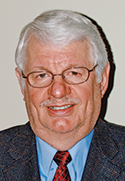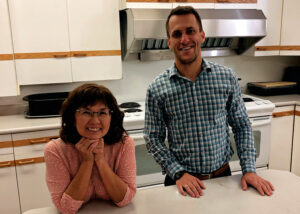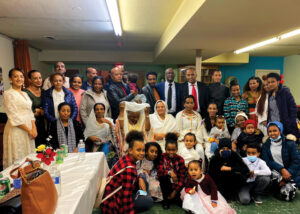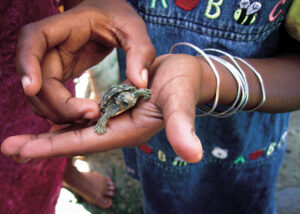Once in a great while along comes a classic literary work that gets our attention like no other, not necessarily intended or viewed at the time of its publication, but touching our minds and spirits as a rallying point in our continuing Anabaptist story.
Coming to mind for recent generations are The Politics of Jesus, by John Howard Yoder; Anabaptist History and Theology, by C. Arnold Snyder, and its companion piece, Anabaptism in Outline, edited by Walter Klaassen; and The Upside Down Kingdom, by Donald B. Kraybill, to name a few. These enduring gems are to be regarded as the “keepers” of the Anabaptist story as they instruct and identify us in imaginative and enduring ways.
While it may be too early to tell, Paul Born’s just-published Deepening Community may soon be seen as joining these works in its compelling probing of what we consider both one of our theological and practical touchstones, or “talismans,” as used as a literary device by writers. What gives strength and authenticity to Born’s words is that not only is he rooted in the Mennonite faith, but as a community organizer he has literally put his words into action around the globe.
Our understanding and practice of community, while not exclusive to our communion, is deeply rooted and part of our spiritual DNA. As part of our parlance, with its many assumptions, it hardly needs to be spoken; it often finds its way into our vocabulary as non-verbal communication. Born takes us beyond these surface perceptions to a world that is unfamiliar with these dynamics, honed over time, in our tightly knit, culturally safe enclaves.
“I believe we can deepen our experience of community as the alternative to falling into, or even embracing, dysfunctional forms of community: shallow community, based on selfish or even lazy or bewildered individualism; and fear-based community, in which people derive their sense of belonging from anxiety or hatred,” he writes.
Born reckons with what he calls the Mennonite fear-based community coming out of the refugee experience of his forbears in the last century, but observes a kind of redemption that gave birth to Mennonite Central Committee in 1920. Instead of staying stuck in our sadness from the harshness we experienced, “our conviction came not from our biblical understanding of service, but also from our own need to make sense of the atrocities that had been committed against us.”
He calls this a form of collective healing: “Fear can pull us apart or it can bind us together. It can cause hatred and genocide or reflection and altruism. Fear is a huge motivator for community. It can bring people together to destroy each other or to make the world a better place.”
In defining community at its core, Born draws on the African wisdom of their widely used term, ubuntu, which means “I am human because I belong.” Nelson Mandela explained it this way: “My humanity is caught up, is inextricably bound up in yours.” Born rephrases this as, “We gain our identity and sense of purpose in the context of our community.”
Sharing stories is another important component of community, writes Born, hearing from persons of various ages and backgrounds. It is a way of nurturing and sustaining our lives. The book contains many individual stories, not the least of which is a story of 10,000 pies being unloaded by young people from a large tractor-trailer at the local MCC relief sale, an event bringing tears to his eyes when seeing those 50 persons joyfully working together.
The event symbolized for him the “celebration of community that nurtures and cares.”
While he doesn’t articulate it in so many words, “deepening community” is good for our health—both physical and spiritual. Forming communities at a deep and sustaining level is an indicator of that health.
But Born wants us to give this gift of community to a troubled and violent world—an antidote to so much madness in so many locations—something he calls developing social capital. To accomplish this he is engaged in large-scale community initiatives globally to bring together the poor, existing community organizations, government at all levels, and private and public businesses.
It is time we export “community,” rather than weapons and failed political strategies. We who know it best and have experienced it, can now give it as a gift to our struggling planet. Born is showing us the way.
–Posted June 4, 2014
See also:
Deepening community (feature article)
For discussion: Deepening community (questions for reflection and discussion)







Leave a Reply
You must be logged in to post a comment.